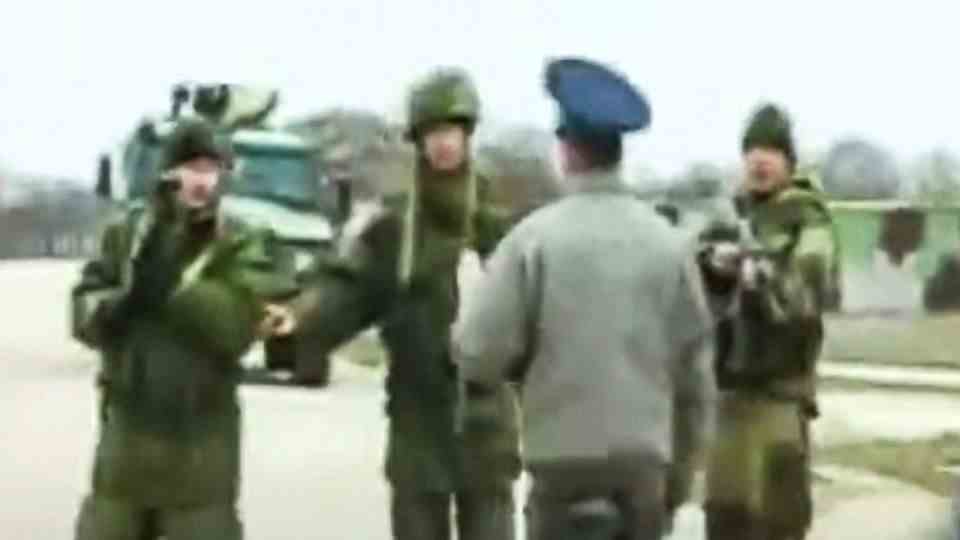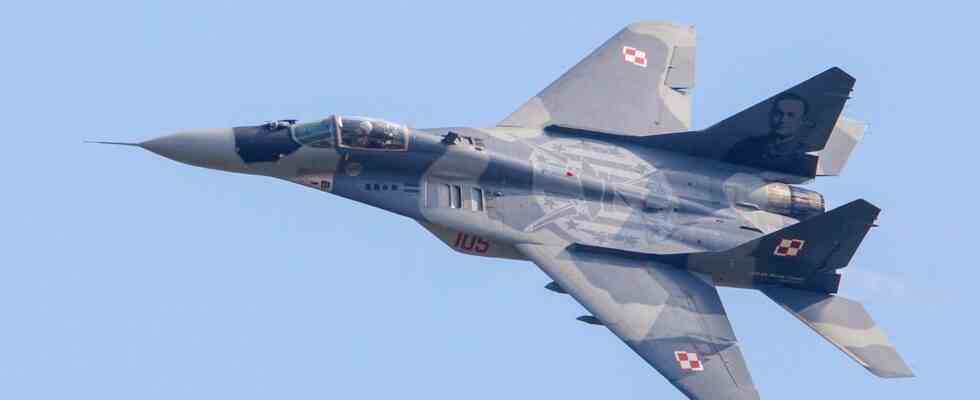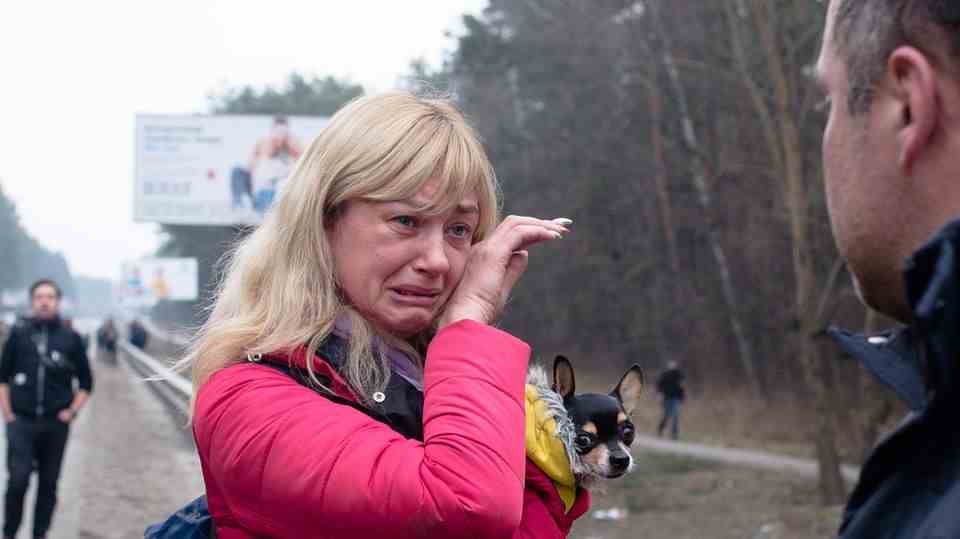Enforcing a no-fly zone over Ukraine could be the prelude to world or nuclear war. Nevertheless, the debate does not die down in the face of the suffering of the civilian population. Meanwhile, the chances of equipping Ukraine with fighter jets in time are diminishing.
“Another spillover of this war to Poland, to the Baltic states – we cannot take responsibility for that.” Foreign Minister Annalena Baerbock (Greens) was last Sunday at “Anne Will” very clear in the first. A no-fly zone enforced by NATO against Russia is out of the question, NATO Secretary General Jens Stoltenberg stated last week.
It’s about nothing less than preventing a third world war and nuclear war. According to Western politicians and experts, this would inevitably be the result of a direct confrontation between Russian and NATO machines.
No-fly zone over Ukraine: debate in the US
And yet: The debate does not want to break off. The images of bombed-out residential areas and civilians killed while fleeing the Ukraine do not fail to have an effect. In the United States, the horror at the death of a family of four, which was reported by the country’s major media, is particularly great. The Ukrainian President Volodymyr Zelenskyy speaks urgently and partly reproachfully in the conscience of those responsible for NATO.
The pressure on NATO to take more direct measures to save lives in Ukraine increases with each day of the war. And although US Secretary of State Anthony Blinken made it clear publiclythat President Joe Biden has made it clear “that we will not bring the United States into direct conflict with Russia”, this is not seen as immutable. Rather, it is said that the President himself has not yet completely ruled out a no-fly zone.
“It’s time to stop his brutality”
Despite the real threat of world catastrophe, some congressmen are reluctant to close the issue. First and foremost, Republican Adam Kinzinger from Illinois, member of the House Foreign Affairs Committee, advocated sticking to the idea via social media: “Not doing this out of fear of Putin just makes Putin even more empowered,” he said in a video message about the Russian President. “Now is the time to put a stop to him and his barbaric brutality.”
Joe Manchin, Democratic Senator from West Virginia, who also disagrees with the stance of the Biden government on other issues, spoke out in favor of not prematurely shelving the possibility of a no-fly zone. “It’s wrong to think that we won’t do something because we’ve already taken it off the table,” Manchin told NBC. “I wouldn’t take anything off the table.”
“Do not telegraph Putin in advance what we are planning”
At least for tactical reasons, the delicate project of taking control of Ukrainian airspace should not be ruled out now, said Evelyn Farkas. The Obama administration’s security expert for Eastern Europe stressed that she does not support a no-fly zone but would not rule out the possibility just yet. “I don’t want to wire Putin ahead of time about what we intend to do, especially since we know he’s capable of practically anything.”
For this reason, the United States must help Ukraine in such a way that it can protect its airspace itself, emphasized Republican Senator from Iowa Joni Ernst, who is a member of the Armed Services Committee. in “Fox News Sunday”. The plan to equip the Ukrainian Air Force with MiG-29 fighter jets, primarily from Polish stocks, has met with broad approval in both political camps. Washington takes a positive view of the request made by NATO partner Poland that the contingent provided must then be offset by US jets. However, this would take time to implement. For its own security reasons, Poland would only make its MiGs available once replacement aircraft have arrived and the pilots have been trained. White House spokeswoman Jen Psaki confirmed that there are a number of “challenging practical issues” with the deployment of fighter jets.

Problem: Where should the machines start?
According to military expert Franz-Stefan Gady from the Institute for International Strategic Studies (IISS) in London, equipping Ukraine with fighter jets would still be covered by the internationally practiced “rules of the game” for proxy wars, but the step would still be delicate. “The United States delivered over 100 F-4 Phantom II fighter jets to Israel in 1973 during the Yom Kippur War, while the Soviet Union actively supported Egypt. The situation was critical at the time and sparked a nuclear crisis between the United States and the Soviet Union,” Gady said to the star. Both the Soviets and the Americans put their nuclear forces on high alert at the time. As is well known, Putin has already announced this in the current war.
“The problem with any aircraft deliveries is not the planes themselves, but rather the fact that they would have to fly operations against Russian troops from NATO countries if Ukrainian airports are no longer operational in the near future,” Gady continued. “Any step in this direction will be considered as participation in an armed conflict on the part of the country, which is threatening territorially against our military,” Vladimir Putin recently stated on Russian TV. “At this very moment, we will consider them as involved parties in a military conflict. And it doesn’t matter what organizations they belong to.”
Only choice between plague and cholera
Last Sunday, both the Ukrainian and Russian sides confirmed the complete destruction of Vinnytsia airport by a rocket attack. Ukraine has thus lost another opportunity to operate aircraft from its own territory. It is currently unclear how many airfields the country still has that are suitable for fighter jets. With Putin’s clear threat to expand the war to any country that allows fighter jets to be launched in Ukrainian service, the option of a no-fly zone seems to be shrinking by the day.
Unless, of course, NATO bows to the pressure and decides to actively support Ukraine – with unforeseeable consequences. Foreign Minister Baerbock on “Anne Will”: “Those are the moments in foreign policy when you can really only choose between plague and cholera.”
Swell: The Hill; political, ARD (“Anne Will”); NBC; FoxNewsDPA news agency


